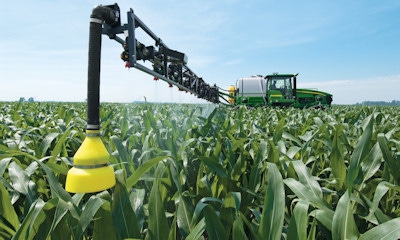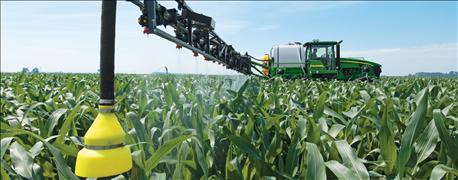
Beating weeds isn’t a one-person job; often an entire weed management team works on the problem. The goal is to keep fields as productive and weed-free as possible. Across the country, farmers turn to custom applicators as key players on that weed-fighting team.
For many operations, custom applicators are valued for their knowledge of products and the services they can provide to growers. However, to get the most out of the arrangement, growers need to be realistic on what to expect and how best to manage the relationship. Why? It’s simple: The farm’s bottom line depends on it.

Custom applicators remain an important resource for farms aiming for optimum weed control.
“Being a custom applicator is not an easy job. You have to please a lot of different customers, all with different needs,” says Glenn Nice, a training program manager for pesticide applicators with the University of Wisconsin Extension.
Nice helps train people seeking a license to use EPA-restricted pesticides. This includes both individuals and employees of commercial operators. While the training covers everything required by federal and state laws, he also says the successful use of custom applicators relies on people working effectively with one another.
“You have to have good communication with the co-op, or whomever your custom applicator might be. Building a long-term relationship with them is also important,” says Nice.
However, good communication and relationships are not enough to successfully combat weeds. You also have to have a plan that makes sense for your operation.
“You know your land better than anyone, so knowing what issues you have is important to developing an application plan in conjunction with the custom applicator,” Nice offers. “Ideally, you want a weed management program that thinks ahead, not just something that reacts to things, so look for an applicator willing to work with you, and [being] proactive is key.”
Applicator’s perspective
Eric Gordon, plant manager for Brandt, Lincoln, Ill., provides custom application services for 40 to 50 customers from its full-service location north of Springfield. This amounts to about 45,000 total acres of applications per year, so he sees firsthand what it takes to make the grower and custom applicator relationship work.
“The key is to sell programs that have good residual control,” says Gordon. “We’re also making sure the timing of applications is right. It’s an extra level of responsibility for us, but it’s better to be proactive than reactive.”
Gordon says this is also the time of year when they review where weed problems occurred this past season. They make notes for their files and adjust their recommended programs accordingly. In January, they offer customers two or three program options for the next season, each with a different set of advantages.
For growers, Gordon says making sure your custom applicators have the latest technology and know how to use it is important, as is their ability to “get the job done when it’s needed.” But, like Nice, he also believes there is an important human element to any grower and custom applicator business arrangement.
“It all gets down to trust. Our job is to make sure growers are making a profit, so I consider them partners,” explains Gordon. “It’s really a people business, so we have to build relationships to make it work.”
- Yontz writes from Urbandale, Iowa.
Solution Center is independently produced by Penton Agriculture through support from SureStart® II herbicide. For more information, visit GetMoreTime.com.
About the Author(s)
You May Also Like




